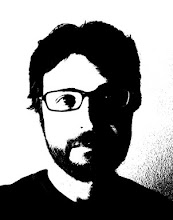
The
Woodstock music festival defines a generation for some. But as the cultural touchstone is marked by a 40-year anniversary, participants, next-generation observers and historians can come up with various different views about the "three days of peace, love and music." Upon reflection, many cite the highly influential movie (partially filmed by a then-unknown Martin Scorsese) as making the true lasting impact on the culture. Others see Woodstock as the capping event on the transition from good times to bad.
Here are three different views of Woodstock from men who have strong ties to the sixties.
Woodstock literally did change
Elliot Tiber's life. His memoir TAKING WOODSTOCK, which recounts his role in helping get the festival off the ground, is the basis for the film of the same name directed by Ang Lee. Tiber serves as the main character in the film (and, naturally, in his own memoir), which stars Demetri Martin.
LISTEN: ELLIOT TIBER, TAKING WOODSTOCKRolling Stone magazine writer
Mikal Gilmore takes a cultural and sociological view of the festival. Gilmore has written extensively about the sixties and where politics and music meet.
LISTEN: MIKAL GILMORE, REFLECTIONS OF WOODSTOCKAuthor of THE ROCK AND ROLL BOOK OF THE DEAD,
David Comfort, notes that bad trips were also a part of the festival. Comfort cites an ungrounded stage, weather and traffic problems and stars on the edge of total implosion as reflections of some of the darker side of Woodstock. Notably, Comfort notes that Janis Joplin and Jimi Hendrix would each live only about a year past the festival.
LISTEN: DAVID COMFORT, ON THE DARK SIDE OF WOODSTOCK
 "He doesn't want to make just another movie," says Rebecca Keegan of James Cameron. Cameron's long-awaited film AVATAR is doing nothing to dispel the director's reputation for ticket sales. With TITANIC Cameron shattered box office records. With THE TERMINATOR he created a franchise; with ALIENS, he revived one.
"He doesn't want to make just another movie," says Rebecca Keegan of James Cameron. Cameron's long-awaited film AVATAR is doing nothing to dispel the director's reputation for ticket sales. With TITANIC Cameron shattered box office records. With THE TERMINATOR he created a franchise; with ALIENS, he revived one.
































